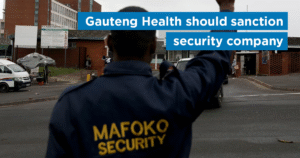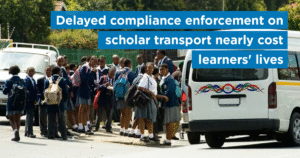Note to Editors: Please find an English sounbite from DA MPL, Michael Waters MPL here.
Gauteng Education Department (GDE) is spending more than R192 million annually on rent for ten district offices, despite deep cuts to the education budget, which has seen the department slash budgets for school transport and feeding schemes to save the jobs of approximately 3,400 teachers.
This was revealed by the Gauteng Education MEC, Matome Chiloane, in a written response to questions posed by the Democratic Alliance (DA) in the Gauteng Provincial Legislature (GPL). According to the MEC, the department spends R16 036 906 million monthly on 10 district offices, totalling R192 442 872 million annually.
The MEC stated that renting is to “accommodate the district office.” Some district offices, like the President Tower Building in Pretoria and Wonderboom Junction Office Suite in Wonderboom, Pretoria North, cost over R2 million in monthly rent.
See the reply here.
This is a simple act of daylight robbery. We cannot be paying astronomical amounts in rent when there is a R28 billion shortfall in the national budget for basic education.
It is another instance of the GDE’s misplaced budget priorities and possibly mismanagement of funds in this department. Instead of renting, how about using the funds to build offices that would be owned by the department?
The DA has written to the office of the Minister of Public Works, Dean MacPherson, enquiring as to whether there are public works buildings available for the accommodation of the district offices and, if so, what the monthly rent would be.
The DA will visit some of these offices to determine if the cost of the rent is reasonable. The DA will also table questions for the MEC for Education, Matome Chiloane, to establish who owns the building and who the rental agent is in each case.
A priority for a DA government is to utilise state-owned properties for district offices instead of renting or leasing office space.
The DA will continue to oppose the flagrant waste of taxpayer money while our children are still taught in asbestos classrooms, teachers’ jobs are at risk, and the budget for school nutrition and transportation is being cut, placing many in precarious conditions.









